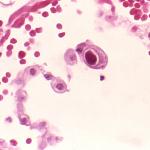As part of the European Union, the UK was a stronghold of anti-GMO opposition. Post-Brexit, however, Britain is changing its outlook for the better.
CRISPR
The standard story most people know about “GMOs” centers around a handful of commodity crops engineered to withstand exposure to weedkillers or produce natural insecticides that ward off pests.
Life goes on as gene-edited foods begin to hit the market.
In the coming years, a genetically engineered tomato may be your first line of defense against high blood pressure.
Last month, comedian Russell Brand gave his YouTube followers a 17-minute lecture about Bill Gat
GWAS and Polygenic Risk Scores (PGS)
Several years ago, a brand new method of genetic engineering called CRISPR was invented, and it was based on discoveries made about the rudimentary "immune system" possessed by bacteria.
“The breakthrough came when the farmer began telling Booker about “the hell” he and his neighbors found themselves in.
Gene editing, using a CRISPR approach to alter single-nucleotide pairs and genetic modification, where entire genetic alterations are incorporated into a plant’s DNA through the use of bacterial “messengers,” have allowed farmers and scientists to
“… the hot flavors in spices, the mouth-puckering tannins in wines, or the stink of Brussels sprouts. They are the antibacterials, antifungals, and grazing deterrents of the plant world.












